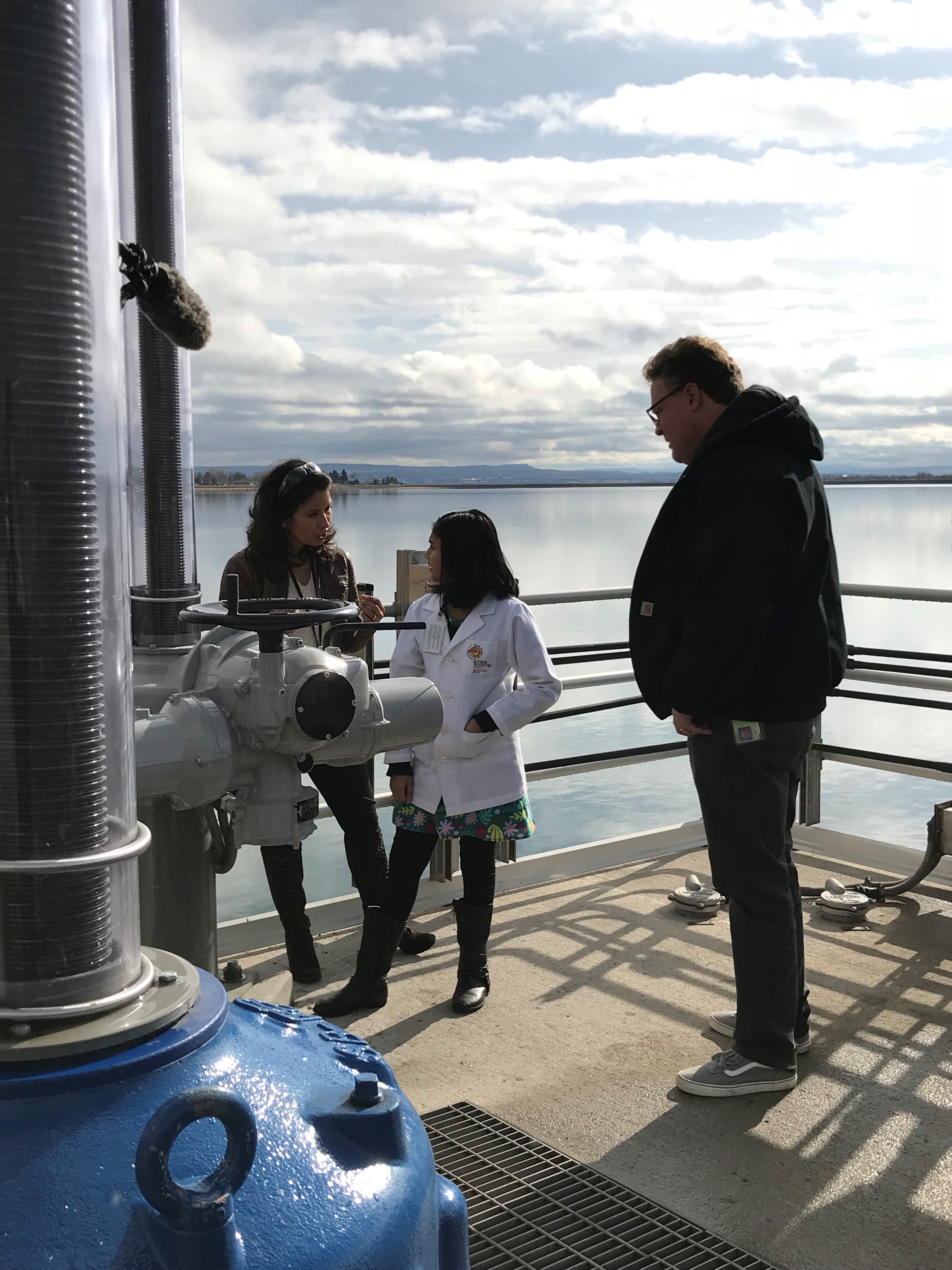
America’s top young scientist drops in on Denver Water
Editor’s note: Denver Water congratulates Lone Tree’s Gitanjali Rao for being named Time’s first-ever Kid of the Year and remembers her visit to our Marston Treatment Plant in 2017. We’re cheering for her and everyone who aims to learn, inspire and make a difference.
America’s young science superstar isn’t one to pass up on a chance to learn something new, so when Denver Water invited her to visit its water quality lab, Gitanjali Rao jumped at the opportunity.
The 12-year-old from Lone Tree, Colorado, gained worldwide attention after her development of a portable lead-detection device won the 2017 Discovery Education 3M Young Scientist Challenge in October.
“When we heard Gitanjali won the contest and was one of our customers, we extended an invitation to come visit,” said Matt Bond, youth education manager at Denver Water. “Our water quality experts were anxious to see her device and also wanted to show her how we test for lead.”
Rao visited Denver Water’s Marston facility in southwest Denver on Nov. 21. The trip included a tour of Denver Water’s water quality lab, Marston Treatment Plant and Marston Forebay — one of Denver Water’s terminal drinking water reservoirs.
Before touring the facility, she presented her device to Denver Water scientists, treatment plant operators, lead specialists and water distribution workers.
“After seeing what happened in Flint, Michigan, I wanted to do something that would make it easier for people to test for lead in their drinking water,” Rao said. “I hope it helps people in Flint and all over the world.”
Rao gained her passion for science at a young age and started doing experiments at home when she was only 3 years old.
“We were very impressed with her device,” said Selene Hernandez Ruiz, water quality lab manager at Denver Water. “The fact that Gitanjali developed a method that lets people know if there is lead in their water within minutes is of great interest to Denver Water and the entire scientific community.”
Rao and Denver Water share a common connection of improving lead testing.
While there is no lead in the water Denver Water delivers to homes and businesses, lead can leach into water when it runs through customer service lines or lead plumbing.
“Denver Water is very proactive with our customers, and we offer free lead testing kits to check if they have any lead issues in their home plumbing,” Hernandez Ruiz said.
During her visit, Rao met with water quality lab technicians for a firsthand look at Denver Water’s lead testing program.
“I didn’t know they did all this stuff to test for lead in water, so this helped me a lot,” Rao said. “When I watched the testing, I looked at it from the customer point of view and how my device would let people test their water at home instead of having to send it in to a lab.”
Rao also toured the microbiology lab, watched the water treatment process and learned about a study Denver Water is doing on corrosiveness and lead pipes.
“I didn’t know that there were so many steps to make water clean,” Rao said. “It’s amazing to see there’s so much hard work behind our water.”
Rao plans to continue developing her device and is working on a patent.
“She has so much potential and there are so many things we can learn from her,” Hernandez Ruiz said. “My advice is to keep going, keep learning and keep showing enthusiasm for science.”
Rao hopes to share what she learned at Denver Water with others and plans to use the knowledge to help in her research.
“A lot of people say kids are the future, but I want to spread the message that we’re here now and we can make a difference,” she said. “I hope my device and my whole process inspires young kids around the world to look for problems and ways to solve them.”




